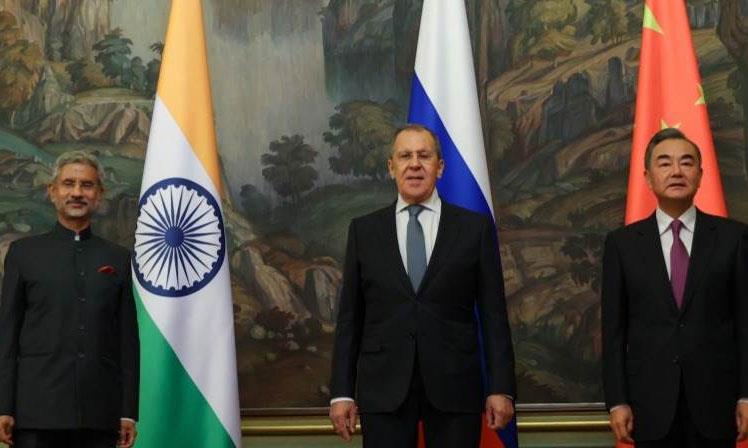
India, China agree on 5-point something, to disengage thousands of border troops in eastern Ladakh
11-September-2020
India and China have agreed on a five-point plan for resolving the prolonged border face-off in eastern Ladakh that included abiding by all existing agreements and protocol on management of the frontier, maintaining peace and tranquility and avoiding any action that could escalate matters. The two countries agreed to the plan during talks between External Affairs Minister S Jaishankar and his Chinese counterpart Wang Yi in Moscow on Thursday evening on the sidelines of a Shanghai Cooperation Organisation (SCO) meet.
The Indian and Chinese foreign ministers agreed their troops should disengage from a tense border standoff, maintain proper distance and ease tensions in the cold-desert Ladakh region where the two sides had their deadliest clash in decades in June.
The Indian Army and the Chinese People's Liberation Army(PLA) have been locked in a tense standoff in multiple areas along the Line of Actual Control(LAC) in eastern Ladakh since early May. India Tv - India China tension Pangong Lake Eastern ladakh News China border
FILE- This Sept. 14, 2018 file photo shows Pangong Lake in Ladakh region, India. China has been making provocative military moves and firing warning shots along their disputed border despite talks to end the escalating tensions. India and Chinese Foreign Ministers met in Moscow on Thursday and agreed on a 5-point formula to ease border tension. (AP Photo/Manish Swarup, File)
The Ministry of External Affairs(MEA) issued a joint press statement early on Friday featuring five points which were agreed by both sides at the "frank and constructive" discussions by the two ministers.
"The two foreign ministers agreed that the current situation in the border areas is not in the interest of either side. They agreed, therefore, that the border troops of both sides should continue their dialogue, quickly disengage, maintain proper distance and ease tensions," it said.
The joint statement said Jaishankar and Wang agreed that both sides should take guidance from the series of the consensus reached between leaders of the two countries on developing India-China relations, including not allowing differences to become disputes.
This assessment was a clear reference to decisions taken by Prime Minister Narendra Modi and Chinese President Xi Jinping at their two informal summits in 2018 and 2019.
"The two ministers agreed that both sides shall abide by all the existing agreements and protocol on China-India boundary affairs, maintain peace and tranquility in the border areas and avoid any action that could escalate matters," the joint statement said.
At the talks, Jaishankar and Wang agreed that as the situation eases on the border, the two sides should expedite work to conclude new confidence-building measures to maintain and enhance peace and tranquility in the border areas.
The joint statement said the two sides also agreed to continue to have dialogue and communication through the Special Representative(SR) mechanism on the India-China boundary question.
"They also agreed in this context that the Working Mechanism for Consultation and Coordination on India-China border affairs (WMCC) should also continue at its meetings," it added.
China's Foreign Minister Wang's statement
In a separate statement, Wang said �China-India relations have once again come to a crossroads."
Wang �outlined China's stern position on the situation in the border areas, emphasizing that the imperative is to immediately stop provocations such as firing and other dangerous actions that violate the commitments made by the two sides," the statement said.
�It is also important to move back all personnel and equipment that have trespassed. The frontier troops must quickly disengage so that the situation may de-escalate," it quoted Wang as saying.
Leave a comment: (Your email will not be published)